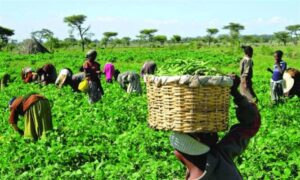BY ABIEMWENSE MORU
In the bustling markets of Kaduna State, where traders, artisans, and shoppers mingle daily, a quiet revolution is underway– one that promises to transform how Nigerians understand and use medicine.
The Pharmafluence Education Advancement Network (PEAN) is leading this charge, bringing vital education about safe medicine directly to the people, right where they live, work and shop.
Recently, at Ungwan Rimi Market, PEAN hosted a community outreach event, the latest in a series of grassroots efforts aimed at tackling one of the most overlooked public health challenges: unsafe medicine use.
The initiative, spearheaded by Kenneth David and supported by the British Pharmacological Society, is more than a campaign; it is a lifeline for ordinary people navigating a complex healthcare landscape.
Amina, a market trader and mother of three, recounts her experience.
“I remember attending one of PEAN’s seminars at Narayi High School in Kaduna.
“Before that, I did not know that taking the wrong medicine or storing it improperly could be dangerous; I thought medicine was just medicine,” she said.
Amina’s experience is a testament to the power of education.
More than 350 participants gathered at that seminar, learning in simple, relatable language the five key principles of medication safety: the right person, right medicine, right condition, right time, right route, and right du- ration. These are just technical terms; they are lifesaving guidelines.
Mr Kenneth David, the Founder of PEAN, offered some explanations. “We broke down complex hospital jargon into principles everyone could understand.
“We emphasised practical tips like storing medicines away from sunlight and moisture, keeping them out of children’s reach, and avoiding expired products.
“Many attendees were surprised to learn that poor storage conditions could render medicines ineffective, or worse, harmful, even before the printed expiry date.
“This revelation underscored the critical need for such outreach programmes.” David believes that knowledge empowers individuals to become ambassadors of medication safety within their communities.
“It is about creating a ripple effect; when one person understands the importance of safe medicine use, they pass that knowledge to their family and neighbours.”
The stakes are high; across Nigeria, many people unknowingly purchase medicines from unqualified vendors or use drugs with- out proper guidance, risking adverse side effects and treatment failures.
This is particularly troubling in busy markets, where the hustle and bustle can overshadow the need for caution.
PEAN’s upcoming outreach aims to reach market women like Amina, youths, commercial motorcyclists, food vendors, and shoppers, those who often lack access to formal healthcare information but are most vulnerable to unsafe practices.
“It is heartbreaking to see people suffering from preventable medication errors.
“Our goal is to reduce these risks by equipping the community with the right knowledge to make safe, informed health decisions,” David laments.
For many Nigerians, these interventions are not just educational; they are transformational, potentially saving lives and improving health outcomes in communities where access to professional healthcare is limited.
While PEAN works to improve medicine use on the ground, at a national level, the Nigerian government is strategizing on a different but complementary front: local pharmaceutical manufacturing.
The Federal Government sees this as the surest path to medicines security, and it recently took a major step by convening the National Harmonisation Conference 2025 in Abuja.
Mrs Olubunmi Aribiena, Director of Food and Drug Services at the Ministry of Health and Social Welfare, outlined the government’s vision.
“Local manufacturing of pharmaceuticals, vaccines, and medical devices presents opportunities beyond healthcare; it means job creation, economic growth, and national security.”
Reflecting on the COVID-19 pandemic, Aribiena emphasised that Nigeria could not afford to be caught unprepared again.
“We need innovative ways to unlock the health sector’s value chain and position ourselves to benefit from the African Free Trade Continental Area, one of the world’s largest markets,” she said.















